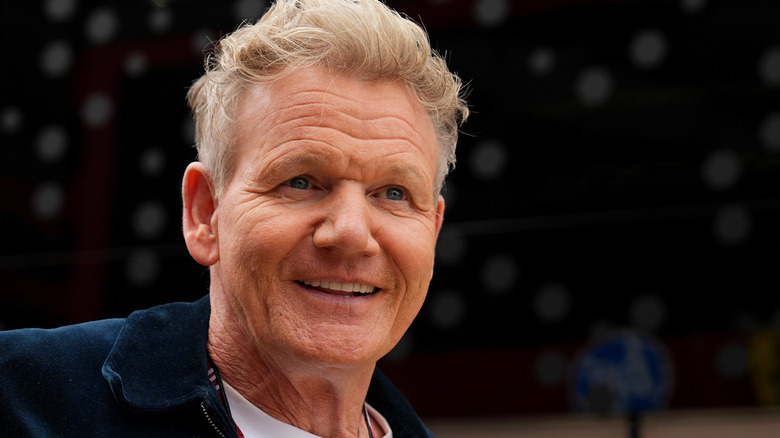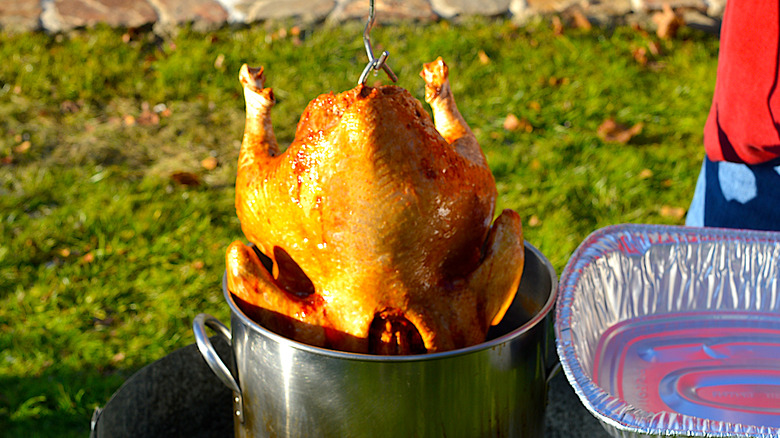The Deep-Fried Food Gordon Ramsay Refuses To Eat
Good chefs' most valuable skill is using ingredients in original and innovative ways to produce deliciously unique meals. As part of that, they enjoy exploring different cuisines and dishes to experience foods and flavors that are new to them, helping spark their creativity. But sometimes those foods will leave them more repelled than inspired. For celebrity chef Gordon Ramsay, deep-fried turkey is one of the foods that he avoids at all costs.
Ramsay doesn't shy away from creating dishes that might make some people hesitate, like the British chef's unexpected English Breakfast Pizza combo. But deep frying a turkey is apparently a bridge too far. During a "Late Show with Stephen Colbert" appearance, Ramsay talked about having deep-fried turkey for the first time when an American friend invited him over for Thanksgiving. He described being confused about going into the garage and then seeing what he called a "vat" for cooking the bird, and called the fried turkey "[bleeping] disgusting."
The chef told Colbert the turkey had been too dry, adding, "There's a reason why we only eat that bird once a year." He said turkey should instead be roasted using herb butter and bacon. It's a recipe he's shared online, with herb butter rubbed under and on the skin and bacon covering the breast, both to help make its lean meat flavorful and moist. But Ramsay didn't win over Colbert, who called fried turkey "so good," and said, "I'm from the South, everything is deep fried."
Deep-frying turkey that Gordon Ramsay might like
Ramsay may be against deep-fried turkey, but this method can make a delicious bird if done correctly. Turkey is likely to dry out when cooked at high heat (like deep-frying) because it's lean. With a larger turkey, the skin can also burn before the inside is done. The method additionally has safety risks, and you can see it go wrong in videos across social media (those people didn't follow our guidelines for deep frying turkey without catching fire).
Begin with a turkey below 15 pounds, which will cook more evenly. Any wetness can cause dangerous splatters, so pat it dry with paper towels, including the cavity. It's safer to use a dry brine or rub with salt and seasonings rather than a wet brine for the same reason. Apply the brine/rub a day ahead and leave the turkey uncovered in the refrigerator overnight. This increases flavor, and helps keep the turkey moist and make the skin crisp up well. Salt is dry brines/rubs' moisture-retaining key ingredient, and you could use others as well as regular salt, like onion, garlic, or seasoning salts. You could also inject a marinade or seasoned butter into the uncooked turkey.
The turkey deep fries fast, requiring only about three minutes per pound. It needs to reach a safe temperature of 165 degrees Fahrenheit in the breast or 175 degrees in the thigh. However, you can take it out at 10 degrees lower, and holdover cooking will take it there with less risk of being too dry.

